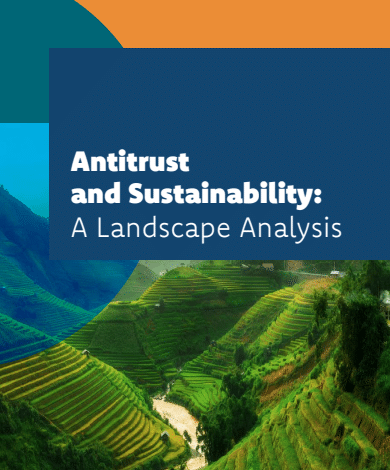Time and Compromise in UNCITRAL’s Working Group III
During the week of 22 September 2025, States once again met in Vienna under Working Group III (WGIII)...

Over the past few years, there have been growing academic, political, and social debates about the boundaries of competition and collaboration in markets for non-economic benefits, including efforts to mitigate environmental impacts, to accelerate the energy transition, to protect human rights, and to advance worker rights and prosperity. Questions and controversies have arisen both with respect to joint standard-setting and activities among companies and industry-wide collaborations, as well as with respect to coordinated engagement by investors and financial institutions. Increasingly, antitrust-related questions are said to be chilling necessary engagement and mobilization of private actors to address climate and other sustainability-related challenges.
The existing debates about what is – and what should be – permissible private-sector collaborations to advance pro-social goals are complicated by politically-motivated and illegitimate attacks against the pro-climate (and other environmental, social, and governance) policies of businesses, investors, or financial institutions. Accordingly, there are ongoing discussions not only about whether industry or competitor firm collaborations should be allowed (and if so, under what legal arrangements), but also about clarifying and defending activities that are clearly permissible under existing interpretations of antitrust law. Simultaneously, concerns about the rising market power of dominant firms across many industries raises the imperative that new approaches to enforcing and interpreting competition policy aligns with – and does not undermine – achieving environmental and social objectives.
The private sector and financial actors have tremendous power – and therefore responsibility – to ensure that their economic activity is positively aligned with global sustainability goals. Their power and potential to influence market participants can be greater when they collaborate with others in their sector or with other investors or financiers. The questions, therefore, about what forms of collaboration are desirable and permissible are timely and urgent.
In January 2023, the Columbia Center on Sustainable Investment and the Sabin Center for Climate Change Law began unpacking this problem space, identifying the parallel and intertwined debates and legal questions, as well as the political and other challenges and dynamics.
In July 2023, we released Antitrust and Sustainability: A Landscape Analysis. The report gives an overview of the broad purview of antitrust law, and the myriad and complex ways in which it intersects with and affects sustainability goals. The purpose of this report is to provoke and support engaged and informed conversation among policymakers, private firms, and the wider public around the appropriate competition policy framework which can support sustainable development broadly. It considers the range of inherent complexities and aims to chart a path forward in a thoughtful manner.
Ultimately, competition policy and its enforcement agencies are one component of a broad policy framework that shapes private sector activities and their alignment with, or contributions to, climate or other sustainability-related policy objectives. Incentivizing private actors to align their practices with sustainability and climate goals will require policies and regulations throughout the economy. Antitrust policies and agencies should be a coherent part of this robust policy framework.
Explore related work
Document